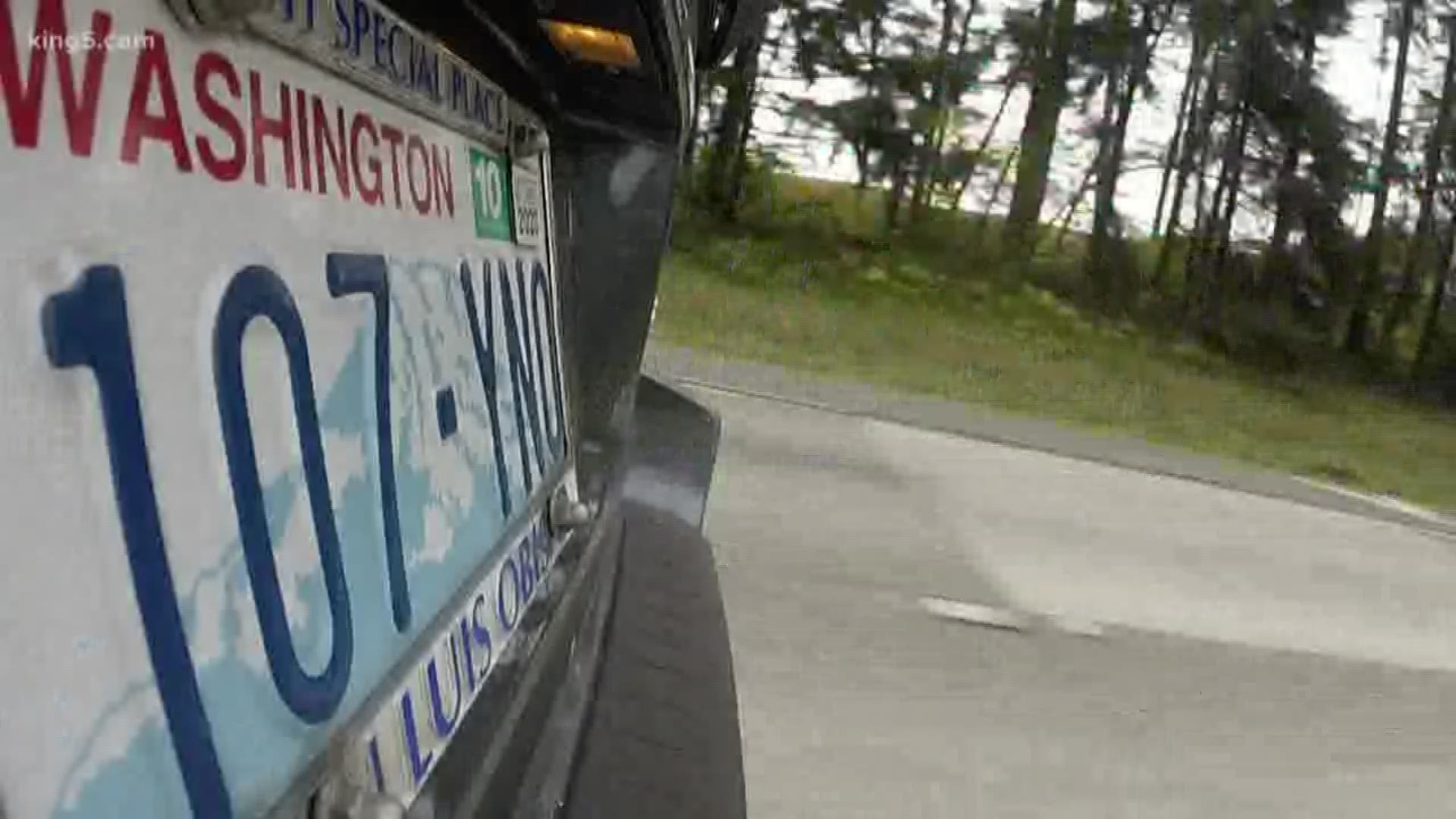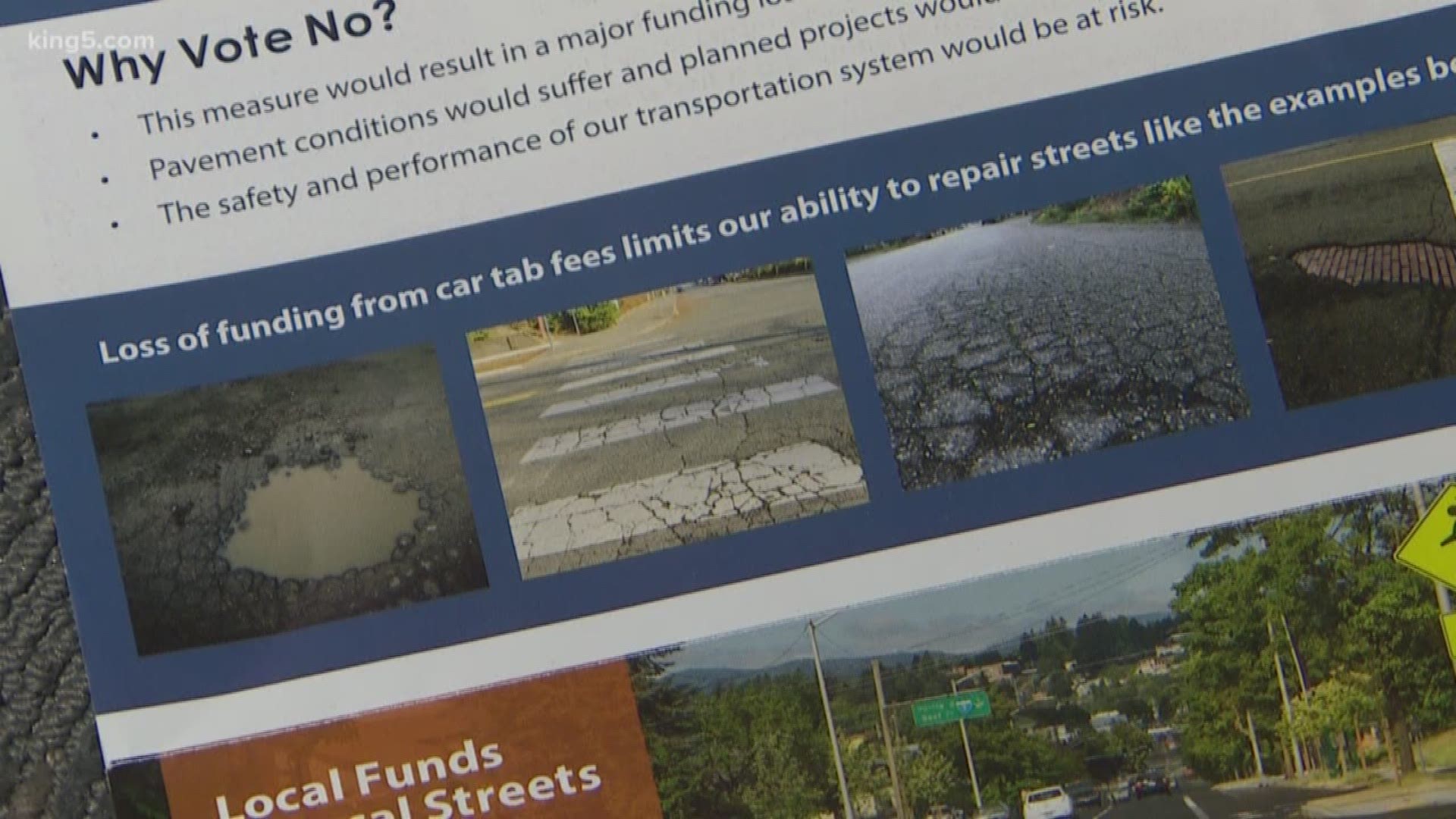OLYMPIA, Wash. — Washington voters could pass an initiative that will save them hundreds of dollars every year.
But what's the cost?
Initiative 976, sponsored by anti-tax activist Tim Eyman, calls for a $30 cap on state car tab fees. The initiative would eliminate extra fees for everything from electric cars to Sound Transit projects.
The state’s budget office estimates the passage of I-976 would eliminate more than $4 billion in tax revenue by 2025.
In Seattle, an $80 car tab fee pays for, among other things, bus and light-rail passes for students and residents who live in public housing.
Sound Transit estimates the move would result in $20 billion in losses for future construction and public transportation expansions.
“If you are cutting revenue you’re also cutting services and projects. There’s no free lunch,” said Andrew Villeneuve, who's been handing out “No on I-976” flyers to commuters.
Villenueve said halting transportation plans across the state could hurt the state’s economy.
Eyman said he does not think the initiative will derail construction plans.
“It is truly one of the most laughable arguments the opponents make,” said Eyman.
If it does, Eyman said the state should use reserves and the Rainy Day Fund to pay for construction projects. Eyman said voters are tired of paying hundreds of dollars to renew car tabs.
State lawmakers have introduced bills aimed at changing the vehicle valuation formula in recent years but they've failed to gain support.
"If the Legislature had fixed it, I'm beyond certain that we'd never have collected enough signatures to get this on the ballot," Eyman said. "People feel frustrated. This initiative is the only way that people can come up with a better system."
A lawsuit filed by taxpayers may also determine the fate of the Sound Transit car tab fee. It awaits a decision from the Washington Supreme Court.
More than 60 cities use car-tab fees to pay for road construction, bus service and sidewalks. In addition, the state charges fees to help pay for a variety of programs including Washington State Patrol traffic enforcement, highway maintenance, ferry operations and maintenance of county roads and bridges.
Everett Mayor Cassie Franklin said losing some $1.5 million a year in car tab money could result in roads that are less safe, public transit that is less reliable and an increase in congestion.
"This is being sold as a savings, but this is not a savings," Franklin said at a debate about the initiative earlier this month.
Franklin, Seattle Mayor Jenny Durkan and other government leaders have come out against the initiative and over a half-dozen city councils have passed resolutions against it.
The city of Olympia went a step further, sending a mailer urging people to vote no. The state Public Disclosure Commission is investigating because a spokeswoman said state law prohibits city councils from using public resources to promote or oppose measures. Eyman called the mailing "blatantly illegal."
Eyman's $30 car tab initiative first passed 20 years ago. It was struck down in court before being enacted by lawmakers. The fees have crept up in recent years as lawmakers allowed them and voters in some places approved them.
Eyman's latest measure comes as he fights a slew of campaign finance legal woes.
He's twice been held in contempt of court for refusing to cooperate with court rules in connection with a lawsuit filed against him by Attorney General Bob Ferguson.
A judge earlier this month ordered a for-profit signature-gathering firm and one of its officers to collectively pay more than $1 million for deceiving state residents by funneling their campaign donations to Eyman for his personal use.
Eyman didn't comment on the lawsuit but said the role of an initiative sponsor is not to be respected and liked.
"I think the average voter thinks, 'I don't care about Tim Eyman. I don't care if Lucifer is the sponsor if the measure is doing what I want it to do.'"
State Sen. Steve Hobbs, chairman of the Senate Transportation Committee, said in Everett earlier this month, that if the measure passes, the Legislature will be forced into triage mode.
"We'll have to do an analysis on what gets cut and what stays ... and things will fall through the cracks," he said.
The Associated Press contributed to this report.


